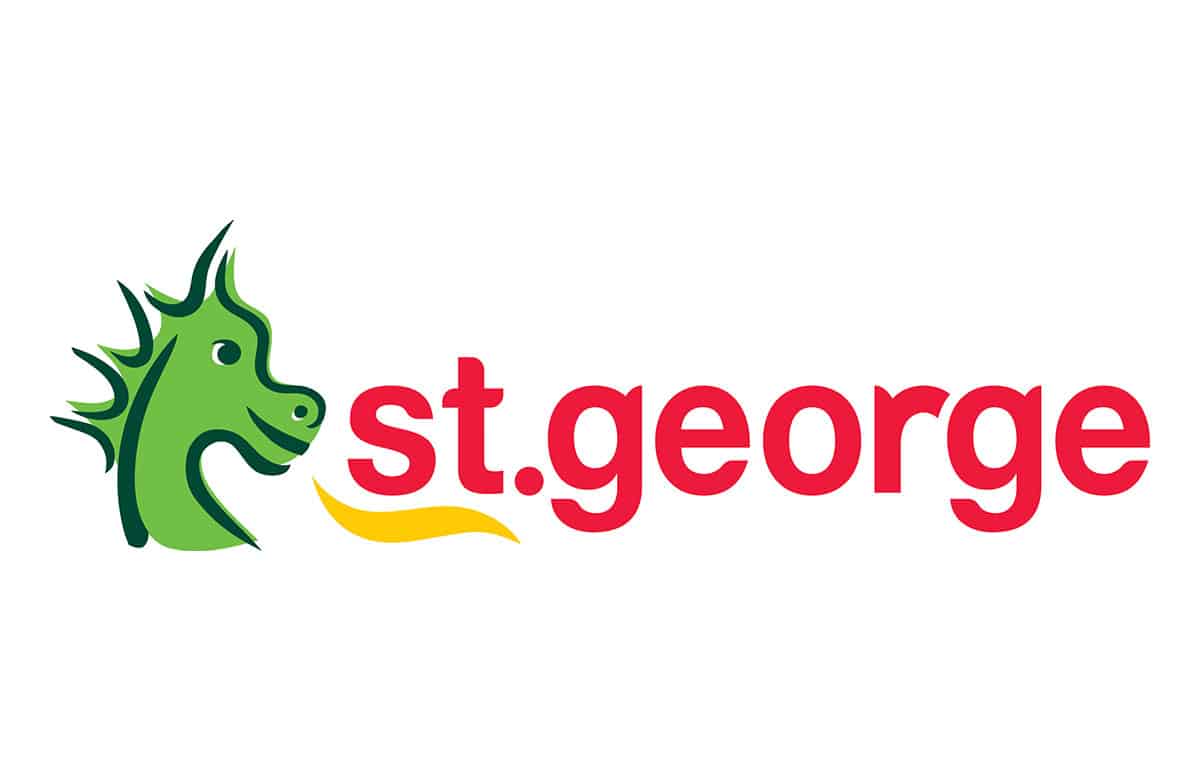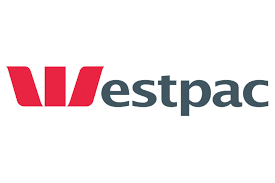Home > Bank Accounts > Online Bank Accounts
Online Bank Accounts
Take an in-depth look at online bank accounts in Australia with Savvy and find out what they can offer you.
Author
Savvy Editorial TeamFact checked
Compare online bank accounts
Finding the best bank account can save you hundreds on fees and connect you with the very latest in smart banking technology. Compare bank accounts from a wide variety of providers with Savvy to find the very best offers available on the market right now.

|
|||||||||||||||||||
|---|---|---|---|---|---|---|---|---|---|---|---|---|---|---|---|---|---|---|---|
|
|||||||||||||||||||
Use invite code SAVVY10 for $10 upon successful sign-up. (Refer to offer T&Cs on Up website)More details |
|||||||||||||||||||
- Make 5 successful purchases using your Up or 2Up debit card, Apple Pay™, Google Pay™ or other digital wallets in a calendar month to qualify for interest. ATM transactions or transfers are not included.
- No overseas purchase fees when travelling abroad with Up.
- Auto-spend categorisation helps you better understand your purchase habits.
 ING Orange Everyday
ING Orange Everyday |
|||||||||||||||||||
|---|---|---|---|---|---|---|---|---|---|---|---|---|---|---|---|---|---|---|---|
|
|||||||||||||||||||
Rebates on ATM fees anywhere in Oz. No ING international transaction fees. Zero monthly fees.More details |
|||||||||||||||||||
- $0 ING international transaction fees
- 1% cashback on eligible utility bills
- Australia's Most Recommended Bank

|
|||||||||||||||||||
|---|---|---|---|---|---|---|---|---|---|---|---|---|---|---|---|---|---|---|---|
|
|||||||||||||||||||
No monthly account fees ever, with no conditions. Free use at over 7,000 ATMs around Australia. No overdrawn fees if you happen to go over your account balance. Open an account in less than 7 minutes.More details |
|||||||||||||||||||
- No monthly account fees and no minimum monthly deposits
- No overdrawn fees if you happen to go over your account
- No ATM withdrawal fees at over 7,000 ATMs across Australia
- A NAB Visa Debit card for all your everyday spending

|
|||||||||||||||||||
|---|---|---|---|---|---|---|---|---|---|---|---|---|---|---|---|---|---|---|---|
|
|||||||||||||||||||
Get $40 with a new Complete Freedom everyday bank account.More details |
|||||||||||||||||||
- Get $40 when you open a new Complete Freedom account online and deposit $500 within 30 days
- Zero fees
- Manage your card with internet and mobile banking
- Fraud money back guarantee
 Westpac Choice
Westpac Choice |
|||||||||||||||||||
|---|---|---|---|---|---|---|---|---|---|---|---|---|---|---|---|---|---|---|---|
|
|||||||||||||||||||
Westpac Choice for easy day-to-day bankingMore details |
|||||||||||||||||||
- Pay $0 monthly fee if you’re under 30
- Track trends in Cash flow to stay in control of your monthly budget while tagging expenses in Categories to better understand your spending
- Use Osko by BPAY so you can pay and get paid in seconds
Disclaimer: Savvy is not advising or recommending any particular product to you. We provide general information on products for the purposes of comparison, but your personal situation or goals are not considered here. Although we try to make our comparisons as thorough as possible, we do not have information on all products on the market on our site.
You should always consult a given offer's PDS or further documentation in the process of deciding on which loan to choose, as well as seeking independent, professional advice. If you decide to apply with one of the lenders listed above via our website, you will not be dealing with Savvy; any applications or enquiries will be conducted directly with the lender offering that product.
Online bank accounts explained
Online banking has been around since 1995, but it took another 15 years for online banks to really get started and make their mark. Nowadays, there’s a wide range of online banks ready to compete for your business, with ultra-low fees and super slick online platforms. Compare online banks and accounts and their features with Savvy to help you find the best banking deal in Australia.
What are online banks and online bank accounts?
There are online banks and online bank accounts and they’re not precisely the same thing. An online bank is a bank that only exists digitally, so it doesn’t have any physical high street branches you can walk into. All business is done either online, over the phone, by email or SMS. Aside from this, though, the products and services you can receive are largely the same as any other physical institution, with key features such as low fees making them attractive to Australian customers.
Some online banks are offshoots of the Big Four banks. Other smaller banks have grown up and evolved from large credit unions or building societies. However, another category of banks (neobanks) has only entered the market in the past two to four years, offering a completely new way of managing your personal finances.
On the other hand, online bank accounts are offered by all banks and financial institutions. The term simply refers to the ability to use the bank’s website or apps to carry out your banking transactions online. Savvy can help you work your way through the digital minefield by offering simple-to-understand bank account comparison information to help you decide which type of lender and account is best for you.
How do I compare online bank accounts?
It’s important to know how to effectively compare bank accounts before commencing the sign-up process. Some of the key factors include:
- Look for low account fees
Online financial institutions don’t have huge overheads, so their running costs are much lower than the major high street banks. In addition, credit unions are not-for-profit organisations and building societies are owned by their members, so they’re able to pass on savings to their customers in the form of lower fees. It goes without saying, but the lower your fees, the greater your savings will be overall.
- Expect higher interest rates for your savings
Because they don’t have high overheads or shareholders demanding large profits, online banks, credit unions and building societies can offer higher interest rates on savings accounts, so you can watch your savings grow faster. Compare savings accounts with Savvy to ensure you’re getting the highest interest rate available and maximising your savings.
- Compare the key features on offer
As the market for online banking continues to grow, more and more online banks are creating innovative and flexible financial products that are not available at a traditional bank. Features such as account sweeping (where funds are automatically transferred from a transaction account to a savings account when a pre-defined limit is reached), budgeting tools, bill prediction and round up accounts are becoming more common, so you should look to these if you’re interested.
- Expect more banking flexibility
Online banks, building societies and credit unions don’t use the same cookie-cutter approach the big banks use; they have the freedom to be more flexible. It can be easier to get an account overdraft, for instance, with an online bank, building society or credit union. A lender which gives you the most flexibility should be high up on your priority list.
- Think about the security measures you’re comfortable with
Digital banks are aiming their services at tech-savvy Aussies who embrace new technology when they introduce the latest in enhanced security. Expect to see more revolving CVVs (where your card’s security CVV number changes every 24 hours), biometric recognition (face, fingerprint, voice and eyeball recognition) plus voice-activated transactions with your banking into the future.
- Special offers
Some financial institutions offer incentives to persuade you to switch banks such as cashback offers, frequent flyer points, pay TV subscriptions and more. If you’re thinking of switching your bank, see if any special offers from online banks are there which could make your switch even sweeter. These special offers are typically easy to get if you shop around for online bank accounts and compare your options with Savvy.
What different types of online bank accounts are there to choose from?
First, you’ll need to decide what type of bank account you want and what you want your bank account to do. Is it to help you pay bills and shop? Or to help you save up your money, or to save you money by reducing the interest you pay on your home loan?
1) Transaction accounts (also known as everyday accounts)
These are day-to-day accounts which can receive your wages or income and help you pay for your shopping, utility bills and rent or mortgage. There are special slimmed-down versions of transaction accounts designed especially for young children, teens and students. If you run your own business, online business accounts let you keep track of all your transactions by offering accounting tools integrated with your transaction account.
Almost all transaction accounts allow you to:
- make automatic transfers to other accounts or credit or debit cards
- make instant electronic funds transfer (eft) payments using either Osko or PayID
- use BPAY or QR codes to make payments
- use ATMs to withdraw cash and check your transaction account balance.
Transaction accounts are moving towards being linked to digital cards stored in digital wallets on your smartphone. Interest is rarely earned on money in a transaction account, so they tend to be used for the temporary receipt and storage of funds before those funds are transferred elsewhere and used for other purposes such as paying rent or a mortgage.
2) Savings accounts
These are accounts to store and save money. Interest is earned on the sum of money deposited, which allows savings to grow as the interest is compounded. Compounding simply means the interest you earn is placed back into your savings account every month, so you end up earning interest on the interest.
One popular form of savings account is an offset account, which is an account linked to your home loan. Every dollar in your offset account reduces the interest you’re charged on your home loan by offsetting the amount you originally borrowed.
You can also take out a term deposit, which locks you into leaving your money with the bank for a set period in return for a higher interest rate. For example, a three-month term deposit may offer an interest rate 1.5% higher than the standard savings account rate.
Are my money and identity safe with an online bank?
Yes – the Australian government operates a financial guarantee scheme that guarantees deposits in savings accounts up to $250,000. The Financial Claims Scheme (FCS) applies to all authorised deposit-taking institutions, so all online banks, credit unions and building societies are covered to the same extent by this guarantee as the major high street banks are.
In addition, all banks (including online banks, building societies and credit unions) are required to have an Australian Credit Licence (ACL) number. They’re required to display this number on their website to prove they’re legitimately licenced. Strict penalties apply to people or companies who unlawfully engage in credit activities without this licence. The granting of ACL licences is controlled by the Australian Securities and Investments Commission (ASIC), so banking in Australia is amongst the safest in the world.
In terms of safeguarding identity, the hardware and software used by online banks are the same as that used by the big high street banks: think in terms of 256-bit SSL encryption, which is a highly secure data and file encryption technique used if you submit your ID documents to an online bank. Your personal data is just as safe with an online bank as it is with a high-street bank.
Types of bank account
Transaction accounts are crucial for managing your everyday expenses, from paying your bills and rent to doing your grocery shopping.
Your account doesn't have to be with a bricks-and-mortar bank, however, with a wide range of online-only banks and institutions on the market.
Giving your child a bank account with special restrictions attached can help teach them financial literacy and the importance of money.
Student transaction accounts often come without fees and are designed to help you manage your funds and encourage good habits.
If it's come time in your relationship to start managing couples' expenses together, a joint account could help you do so more effectively.
Banks and other institutions offer special transaction accounts for businesses of all sizes to enable you to cover your ongoing expenses.
These are designed to be used overseas and often come with benefits such as no overseas transaction or ATM fees and multi-currency storage.
Why compare bank accounts with Savvy?
100% free
Our comparison service is free to use, meaning you can compare bank account offers at any time.
Compare and choose online
You can compare accounts and choose to open one online from wherever you are, at home or on the go.
Reputable providers
By partnering with trusted Australian institutions, you can be more confident when comparing offers with us.
How neobanks have created more opportunities for Australians
What are neobanks?
Neobanks are small, new banks (neo is the Greek word for ‘new’) which emerged after financial regulation changes in Australia in 2018. They’re also known as virtual banks or digital banks and are really making their presence felt in the fintech industry. Some have teamed up with money management mobile apps to offer very new ways of managing your finances.
How many neobanks can I choose from?
According to NeoBanks.app, 11 neobanks are operating in Australia as of early 2022, although this number is expected to grow rapidly in the next five years. Neobanks offer the prospect of more personalised banking and innovative new tools and features.
What are some of the key features of neobank accounts?
In addition to regular banking transactions, neobanks offer innovative financial features such as:
- being able to see spending updates on your phone, telling you how much you’ve spent that week or month
- being able to click on a calendar to see when your utility bills are due to come in (and how much they will probably be for) based on data harvested from prior months
- personalised budgeting tools, which automatically transfer money from one account or sub-account to another
- sophisticated banking tools such as a round up feature, which automatically rounds up each transaction to the nearest $1 or a pre-set amount, and transfers the rounded-up amount to a savings account
Who can benefit from neobanks?
Millennials are a major target market for the neobanks as they leave traditional ideas of high street banks behind. Those born from 2000 onwards are also far more likely to be comfortable and use biometric security measures, such as eye, face and voice recognition.
More of your questions about online banks answered
The short answer is by comparing your options – specific accounts are available for kids, pensioners, students, couples and businesses. Comparing transaction accounts with Savvy makes it easy to get the best option in the area you’re interested in. Clear comparison information at your fingertips will help you make the best decision for your circumstances.
Yes – you don’t have to be an Australian citizen to open a bank account in Australia. International students who intend to travel and study here can open a student account up to three months before they arrive. Once they land in Australia and settle in, they can provide details of where they’re living and studying. All others wanting to open a bank account are just required to provide 100 points of ID to prove their identity, plus give their home address, email address and phone number.
Yes – but beware of paying additional fees to have multiple accounts open. A more efficient way of organising your banking may be to find an account that allows you to open sub-accounts – which are linked accounts belonging to the same basic bank account. These sub-accounts allow you to organise your money for different savings purposes, such as one for your holiday, one for Christmas presents, another one for annual school fees and so on.
Yes – introductory rates can offer a great deal in the form of increased interest rates for your savings for a set period. Just make sure that when the introductory period is over, and the account reverts to a standard interest rate, you’re still getting the best interest rate available for your hard-earned savings.








